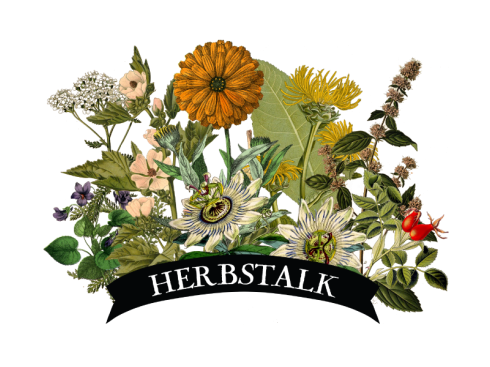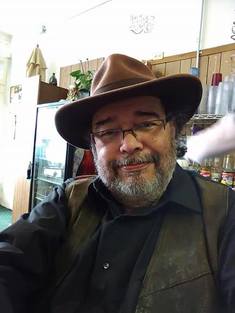|
by Ryn Midura I first met Charles "Doc" Garcia at the Traditions in Western Herbalism conference in 2012. He taught two classes that year, one on Death and Dying, and one on Herbs for Chronic Pain. "One generation ago, most people died at home," he said as he began the first class. "We tried then to extend life. Then we tried to extend death. Many herbalists - well, many white, upper-class herbalists, anyway – are afraid to take terminally ill clients, or those with life-threatening conditions. They've never been touched by death at home." This was not your standard easy-going herbalism class: he was talking about hard truths and hard decisions. He spoke from experience: he told stories of people he'd sat with in their last days and last moments, and how he'd tried to relieve a little pain, provide a little comfort, cultivate a little inner peace. Some of this was herbal – like applying the magic green salve, which every first-year herbalist learns to make, to radiation burns in a terminal cancer case – but more of it was to do with setting aside judgments and listening to the person, in service. "What they want is what they need," he said. "We can help them to not lose any pleasures they can still enjoy." He spoke a lot about the caretaker's feelings, and how to cope with them. "The ones left behind are the ones who suffer. For the caregiver, as for the dying, you go through the stages of grief. Whatever you do to deal with this pain - it's all right. Sex, drugs, 'unhealthy' food, whatever! Overindulge! Show you're alive. No little rafts, when you're drowning." Doc didn't believe in suffering as a path to becoming 'enlightened': "No one was made a better person through pain." I had a hard time with that last one. Surely sometimes, I thought, people need to suffer to evolve? To step (or get pushed) outside of their comfort zone? But he insisted on it, and repeated it when talking about herbs for chronic pain, serious pain, end-of-life pain. "Animals don't learn grace from pain, they learn fear. We can rise above our pain, but we don't have to suffer to learn." I started to understand. There's enough suffering in the world, most of it unavoidable. If we pay attention, if we actively seek out those who are suffering and try to help them - there's much and more to learn, right there in front of us, if we only look. Chuck's spent his life looking. He served in the military, he was a cop; he saw the best and worst of people. He spent years working undercover with the homeless population of Richmond, California – living on the streets, dressing in rags, getting to know the people forgotten and ignored by society. He spent long nights just observing, waiting, and when an opportunity arose he might offer someone a bit of an herbal tonic to fix a UTI, or point out a common weed that could help with a cough. He planted guerilla gardens in vacant lots and abandoned yards. He cultivated relationships over years, rather than marching in with a big red cross and handing out hermetically-sealed single-serving solutions. He walked the walk. He talked the talk, too: along the way, he began teaching, both about homeless support and also about traditional Hispanic herbalism, curanderismo. Doc is a third-generation curandero; he learned this ancestral approach to healing from his mother and worked only with friends and family for nearly twenty years before he began practicing publicly. When you hear him speak about this side of his art, you get two senses simultaneously: one, that he takes this work deadly seriously and has no time for love-and-light fluffy bunny spiritualism which ignores the dark and dangerous aspects of the spirit world; and two, that he doesn't take himself (or anyone else) too seriously, by comparison! I have rarely met a more humble, practical, and open-hearted human. He brings a unique and hard-won perspective on herbalism, and is an important voice to listen to for beginners and experienced practitioners alike. He's the only herbalist I'd ever call "Doc."
|
Archives
November 2023
Categories
All
|


 RSS Feed
RSS Feed